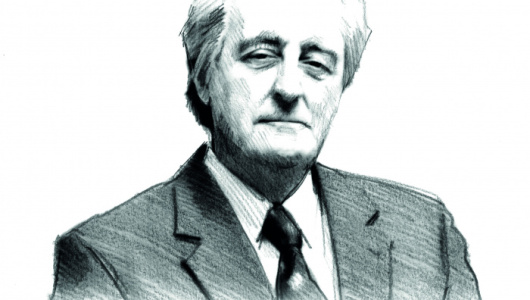Nucleus will be changing the way it pays interest on cash held on the James Hay and Nucleus platforms in a bid to provide a “clear and fair” approach, Money Marketing understands.
The platform group claims its newly created treasury function aims to drive “significantly better” returns for clients.
While customers are not generally encouraged to hold much in cash on platforms, providers tend to take different approaches with how they treat interest on operational cash.
Some platforms do not pass on any interest to clients, others give it all to customers and some do something in between.
James Hay was one of the platforms known to keep all interest, whereas Nucleus gave interest back but at a very low rate of 0.01%.
The firm’s new framework for cash interest, due to come in from 1 July, will be linked to the interest rate the treasury function secures with banks and building societies.
James Hay platform upgrade likely by end of 2022
Nucleus chief commercial officer Alex Kovach, formerly of Interactive Investor, told Money Marketing: “We’re changing the way we treat interest on operational platform cash. Our new approach will see us actively managing cash held on the platforms through a new treasury function, enabling us to secure better interest rate deals.
“We’ll then share the interest generated, paying competitive rates to our customers while ensuring we can continue to keep other charges as low as possible. In making this change to our approach, we’re confident that all our customers will see significantly improved cash returns in the near future – increasing what they receive today.”
Under the changes, the platforms will retain interest earned up to a rate of 1%. It will then equally share the amount between 1% and 1.5%. If the earned rate rises to between 1.5% and 5.00%, it will pay the customer 75% and this will increase to 90% on cash above a rate of 5%.
The move is not to encourage more people to keep substantial amounts in cash but to provide them with a “fair return”.
Nucleus also suggests it is justified in retaining a margin for working to get the best rate for customers.
Clients will not face disruption or lose out on interest payments while the changes are made, the company said.
No one will be paid less than they are currently, it confirmed.
New framework for cash interest
| Earned interest rate | Interest paid on cash holdings |
| 0.00% to 1.00% (inclusive) | No interest paid |
| >1.00% to 1.50% (inclusive) | 50% |
| >1.50% to 5.00% (inclusive) | 75% |
| Above 5.00% | 90% |
Source: Nucleus
Nucleus, the name chosen for the combined group, said it wants to “provide consistency across its platforms.
It believes other platforms will also look to review their approach to cash now we are coming out of an extended period of near zero rates.
Interest rates are expected to rise as the Bank of England looks to dampen inflation.
Other changes
In addition to the cash interest change, Nucleus has made a slight reduction to its platform charges. From 1 July, clients will see charges cut by two basis points from 0.35% to 0.33% for assets up to £500,000.
Under the new pricing model, clients will see their annual platform costs reduce from £350 to £330 for every £100,000 invested, up to half a million pounds.
There will be no change to charges for onshore and offshore bonds, and equity trading.
Since the two firms came together it has talked about the benefits being part of a larger group can bring.
Nucleus chief executive Richard Rowney previously told Money Marketing that scale enables stronger profitability, which will allow the firm to invest in the platform and service it provides.
The company says the new pricing will be “simple and transparent” and offer better value to clients.
New pricing framework
| Investment | Current charge | New charge from 1 July 2022 |
| Up to £500,000 | 0.35% | 0.33% |
| £500,000 to £1m | 0.175% | No change |
| £1m and above | 0.05% | No change |
Source: Nucleus
But advisers have already suggested the change makes the Nucleus platform “slightly less expensive than before”.
Are you wondering where Nucleus new pricing puts them vs the others? pic.twitter.com/CbkPeBNFgO
— Nathan Fryer
Kovach told Money Marketing: “As a growing platform group, our scale means we can invest in our platforms, the service we provide and in reducing the price our customers pay.
“Our strategy is to harmonise and reduce charges across all of our platforms, with the first change coming in July with a reduction of the core Nucleus platform charge from 0.35% to 0.33% per year. This is the first of what will be a series of reductions that will clearly demonstrate our commitment to using the benefits of scale to improve outcomes for our customers.”
He added: “These first steps are a sign of things to come, ensuring our scale means our customers’ investments work harder for them. Other specific changes, such as reducing the overall charges that our James Hay online customers pay, will be confirmed in due course.”
Money Marketing has also learned a pricing project was carried out with consultants to help determine the pricing strategy of the platforms.
It is thought to have cost around £200,000, although the company would not comment further on the commercial aspects.
Strategy and marketing consultants Simon Kucher & Partners was confirmed to have worked with the platform, but other consultants may have also been employed.
When Rowney provided Money Marketing with an update on the platform upgrades and the how the private equity-backing will provide the firepower for more deals, he also explained a bit more about the firm’s plans around price.
He said: “When you bring two organisations together and there are plans to move on to the new platform, it makes sense for you to try and bring a more aligned pricing strategy.”
Rowney admitted the nature of James Hay’s pricing is “complex and not particularly easy to understand”.
“It’s not as transparent as I would like it to be, but it represents pretty good value for money in terms of what it delivers.
“The Nucleus business has got a more transparent and simpler model because of the nature of the product set but is more expensive.”
He added: “The advantages of scale is that I should be able to look at the pricing and say are there opportunities for us to still be profitable and price more competitively. Have I been running a whole series of what I would call strategy and projects to look at that? Absolutely. We’ve worked with people in the industry.
“It’s all to do with aligning towards putting in place new pricing that when we move towards a new platform we don’t talk about James Hay and Nucleus – we talk about one business under one brand and we have a common pricing model.”
The company said there will be a series of announcements in the coming months.
“All of those things should be good news messages for the adviser community,” Rowney added.
Nucleus confirmed its pricing strategy will be delivered in stages as it is a complex process. No changes will be made to James Hay until the new platform is launched.
The company said the overall price customers pay will not be going up as scale is being used to deliver benefits.















The better platforms don’t take a margin out of interest.
The better platforms don’t take a margin out of interest. Plus, platform consultancy seems to have got a lot more expensive in the 5 years since the last time James Hay conducted a platform fee comparison exercise.